
Concussion Care
Is the concussion care program right for me?
- If you have been diagnosed by a physician with a concussion recently, suspect a concussion, or if you feel that you have residual symptoms from a previous injury resulting in concussion symptoms, you may benefit from the concussion care program.
- Whether your symptoms were caused by a motor vehicle accident, a sports injury, at work, a slip and fall, or any other way, we can help.
What are typical symptoms of a concussion?
| Headache | Dizziness |
| Nausea | Loss of balance |
| Poor coordination | Fogginess |
| Confusion | Memory loss |
| Light & noise sensitivity | Trouble sleeping |
What will my treatment be like?
- Comprehensive Assessment – a thorough musculoskeletal and concussion-focused assessment with a physiotherapist.
- Concussion Specific Testing – includes a computerized neurocognitive test, and vestibular, visual, balance and reaction time tests with a kinesiologist.
- Personalized Treatment – based on the assessment and testing result, the physiotherapist and kinesiologist will put together a personalized treatment plan tailored to your symptoms, activities, and lifestyle.
Who will be providing my treatment?
- Your treatment will be provided primarily by a physiotherapist and a kinesiologist. However, should your symptoms indicate it, you may be referred to another member of our multidisciplinary team.
- Our concussion providers are trained in concussion management & rehabilitation. They have extensive knowledge in vestibular and oculomotor function, balance and coordination training, and rehabilitation from other concussive symptoms.
Book Your Complimentary Consultation
Concussion Care Frequently Asked Questions
- What is Concussion?
- What are some Concussion Symptoms?
- If I think I may have a concussion what should I do?
- How soon should I seek concussion treatment after an injury?
- What happens to the brain during a concussion?
- How long does recovery from Concussion take?
- What is Post Concussive syndrome?
- What is second impact syndrome?
- Once I have sustained a concussion is it easier to get another one?
- How do I know if I have sustained a concussion?
- What kind of treatment will be used after an assessment?
What is a Concussion?
A concussion is described as “a complex pathophysiological process affecting the brain, induced by traumatic biomechanical forces”. A concussion changes the way our brain functions and causes it to work less optimally. It may be caused either by a direct blow to the head, face, neck or elsewhere on the body with an “impulsive” force transmitted to the head. A Concussion may or may not involve loss of consciousness, in fact, less than 20% of concussions result in a loss of consciousness.
What are some Concussion symptoms?
Some common symptoms often reported with concussive injuries include:
- Headache
- Dizziness
- Neck pain
- Nausea or Vomiting
- Loss of balance
- Poor coordination
- Trouble focusing on objects or words
- Poor concentration
- Feeling “foggy”
- Confusion
- Amnesia, or poor memory
- “Flashing lights”
- Blurred or double vision
- Seeing “stars”
- Irritability or emotional changes
- Ringing in ears
- Slow to follow direction
- Decreased playing ability
- Easily distracted
- Vacant stare
- Drowsiness/fatigue
- Difficulty falling asleep
- Feeling “off” or not like oneself
If I think I may have a concussion what should I do?
Stop Play immediately
- Consider RED FLAG Symptoms:
- Progressively worsening headache or 10/10 head pain
- Unusual/Excessive confusion/Disorientation
- Grossly unusual behaviour
- Progressive neurological decline or focal neurological deficit
- Significant diplopia or cranial nerve deficit
- Slurred speech
- Excessive drowsiness or lethargy
- Significant unsteadiness/coordination issues
- Repeated vomiting (multiple episodes >2)
- Cognitive decline or difficulty recognizing people and places
Seek emergency attention if any red flags are present
Call us to book a concussion assessment
Book an appointment with your physician for referral.How soon should I seek concussion treatment after an injury?
If RED FLAGS are present ensure medical attention is received immediately.
As best practice it is recommended to see your doctor within the first few days after injury. After being assessed by your doctor it is recommended.What happens to the brain during a concussion?
When the brain undergoes a direct (hit to the head) or indirect (whiplash) blow it can cause the brain to accelerate then rapidly decelerate within the skull. This acceleration/deceleration motion can induce mechanical changes to the nerve fibres – causing them to stretch – and in turn, alter several important pathways. Though injury is apparent given the spectrum of symptoms experienced by a concussed athlete, no structural damage is typically evident on standard imaging techniques such as MRI or CT scans. Instead, these imaging methods are used to rule out more severe trauma such as bleeding within the brain, or fractures of the skull or neck.
How long does recovery from Concussion take?
The majority of concussion-related symptoms are thought to resolve in a short timeframe, however in some cases, symptoms may persist for months.- Risk factors for prolonged symptoms:
- Previous concussion history
- Female Gender
- Migraine History or Post-Traumatic Migraine Presentation
- Signs of Vestibular/Visual Dysfunction
- Depression/Anxiety
- High symptom load
- Symptoms of Cognitive Difficulty/History of learning disability
- Sleep Difficulty
The reason for some individuals recovering more quickly and others is unclear. Even when symptoms resolve quickly it is advisable that a proper gradual return-to-play protocol be carried out for athletes returning to sport.
What is Post Concussive syndrome?
Post Concussive syndrome is a term used when symptoms persist for several weeks and sometimes months after the initial injury phase (7-10 days). If your symptoms persist beyond 3-4 weeks it is important that you undergo a proper medical assessment in order to better understand your situation and take the proper steps to recovery.What is second impact syndrome?
Second Impact Syndrome is a rare, but serious consequence of head trauma, which results in rapid swelling of the brain – potentially leading to severe disability or death. Controversy exists as to whether second impact syndrome is a product of cumulative head trauma (when an athlete sustains a concussion while still suffering the effects of a previous concussion), or if it is simply a product of a single, mild traumatic brain injury.
Regardless of its cause, second impact syndrome is a severe consequence of head injury in young athletes. There should be absolutely NO return to play while an athlete is displaying signs and symptoms of a concussion, regardless of the level of competition.Once I have sustained a concussion is it easier to get another one?
When the brain is in a state of metabolic dysfunction it is believed to be more “vulnerable” to subsequent trauma. During this time a relatively minor second blow to the head may produce more severe and irreversible changes in brain function. In this way, concussive injuries are thought to be cumulative, with progressively less force required to induce trauma to the brain each time. Athletes often minimize the severity of concussion-like symptoms, or do not report symptoms at all following head injury. This may be because the athlete wants to continue playing and believes the symptoms are mild enough to play through. In these situations, often the athlete, parent, coach, or trainer does not realize the significant consequences of playing with a concussion. In general, when a concussion is identified early, managed properly, and return to sport is gradual, the risk to that athlete of sustaining a future concussion is not likely to be significantly different.How do I know if I have sustained a concussion?
Concussions can be difficult to properly recognize given the wide range of symptoms & individual responses. Symptoms of a concussion can usually be associated to other conditions, to complicate things further, the appearance of symptoms may be delayed for several minutes or even hours after the initial injury.
If you, or your child is displaying one or more of the symptoms listed previously and there was an incident or trauma involving direct or indirect contact to the head treat it as a concussion.What kind of treatment will be used after an assessment?
Once you have completed your concussion assessment you will have a follow up appointment to review your assessment results and get you started on your rehabilitation program. Depending on what type of symptoms you are experiencing your rehabilitation will focus on a series of exercises for the vestibular system, visual system, or a series of both. These exercises may be physical including agility, eye-tracking and balance drills, or be more cognitive in nature such as reading, word or image identification and memorization.

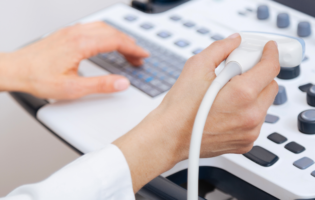







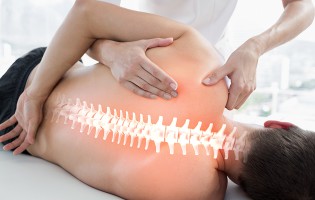
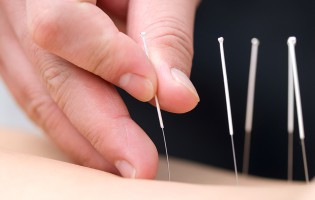





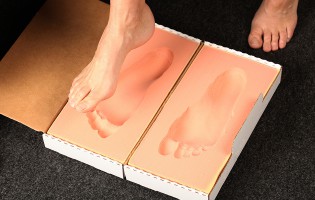

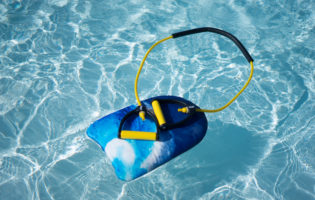
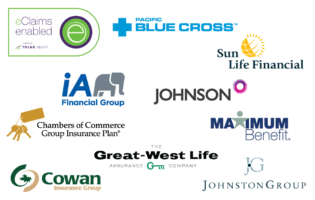
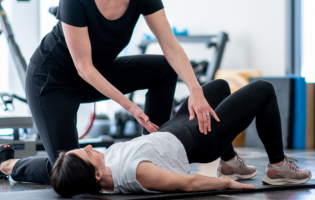

Follow Us!
& Stay Up To Date
BLOG